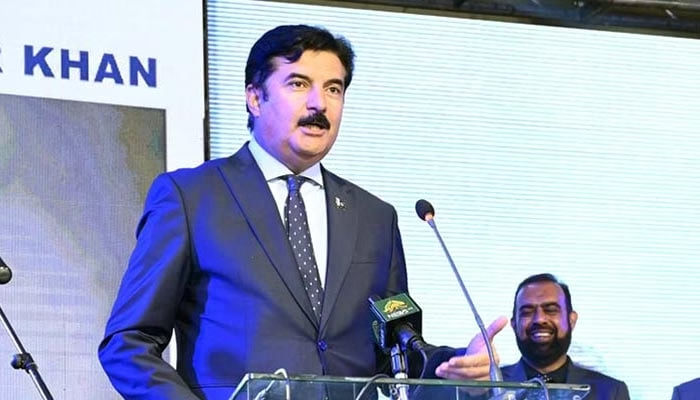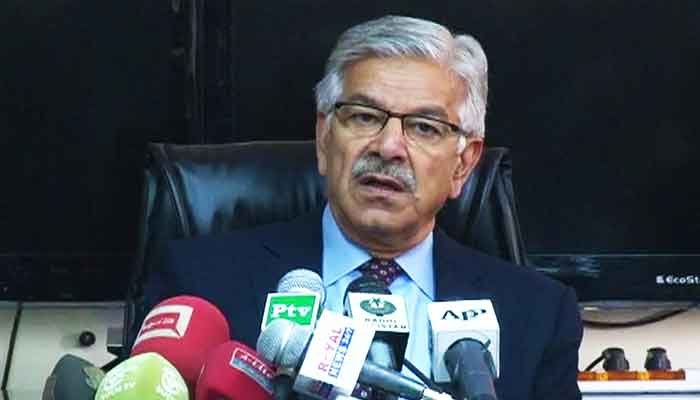Pakistan-Afghanistan relations took a positive turn this week as Khyber Pakhtunkhwa Governor Faisal Karim Kundi reaffirmed Pakistan’s desire for friendly ties with its western neighbor. Speaking at a high-profile ceremony in Islamabad, Governor Kundi emphasized that stability in Afghanistan is essential for peace and security in Pakistan, highlighting the shared destiny of the two nations.
The event marked the fourth anniversary of the Afghan Taliban’s return to power and also served as the first public appearance of Afghanistan’s newly appointed Ambassador to Pakistan, Sardar Shakeeb, following Islamabad’s decision to upgrade his diplomatic status from chargé d’affaires.
A Gathering of Diplomatic and Political Influences
The ceremony drew a diverse audience of international and national figures, underlining the importance of Pakistan-Afghanistan relations in regional diplomacy. Diplomats from China, Russia, Malaysia, the United Nations, and other countries attended, along with senior Pakistani politicians, journalists, and opinion leaders.
Prominent attendees included opposition leaders Mehmood Khan Achakzai and Asad Qaiser, provincial spokesperson Barrister Saif, and former federal minister Mohammad Ali Durrani. The diverse participation reflected a consensus across political lines on the need for constructive engagement between Islamabad and Kabul.
Afghanistan’s Assurances on Security and Non-Interference
In his address, Ambassador Sardar Shakeeb reiterated Kabul’s commitment to a policy of non-interference, assuring that Afghan soil would not be used against any neighboring country — a key concern in Pakistan-Afghanistan relations. He voiced opposition to terrorism and pledged that the Islamic Emirate would work to maintain peace in the region.
Shakeeb also addressed the sensitive issue of Afghan refugees, stressing the importance of voluntary and dignified repatriation. “Repatriation should be based on free choice and carried out with respect,” he said, noting that around four million Afghans have returned from Pakistan and Iran in the past four years, with the Islamic Emirate offering assistance where possible.
The Refugee Dimension in Pakistan-Afghanistan Relations
The refugee situation remains one of the most pressing aspects of Pakistan-Afghanistan relations. Pakistan currently hosts millions of Afghan nationals, many of whom fled decades of conflict. While Pakistan has repeatedly expressed its commitment to humanitarian considerations, economic and security challenges have led to calls for managed and voluntary returns.
According to recent UNHCR estimates, Pakistan is home to over 1.3 million registered Afghan refugees, along with a significant number of unregistered individuals. This makes the country one of the largest hosts of refugees globally, underscoring the scale of the challenge.
Ambassador Shakeeb’s appeal for dignified repatriation indicates Kabul’s interest in working with Islamabad to find a mutually agreeable solution — one that respects human rights while addressing Pakistan’s concerns.
Shared Security Concerns and the Path Forward
Governor Faisal Karim Kundi’s remarks about the inseparable link between Afghan stability and Pakistan’s peace reflect a long-standing understanding in Islamabad. Border security, counter-terrorism efforts, and cross-border trade all hinge on strong Pakistan-Afghanistan relations.
Security experts note that improved coordination between the two countries can help address challenges like smuggling, militancy, and cross-border crime. Enhanced intelligence-sharing mechanisms and joint border management strategies could pave the way for long-term stability.
Economic Cooperation as a Bridge
Beyond security, economic cooperation offers a powerful incentive for closer Pakistan-Afghanistan relations. Afghanistan’s geographic location makes it a natural trade corridor linking Pakistan to Central Asia, while Pakistan serves as Afghanistan’s gateway to the Arabian Sea.
Efforts to boost bilateral trade, improve transit agreements, and invest in infrastructure such as rail and road networks could deliver substantial benefits to both economies. The China-Pakistan Economic Corridor (CPEC) also presents opportunities for Afghanistan to integrate into broader regional connectivity projects, provided trust and stability are maintained.
Symbolism of the Dinner Diplomacy
The ceremony concluded with a formal dinner, creating an informal setting for diplomatic engagement. Such soft diplomacy moments are essential in building trust and breaking down political barriers, especially in regions with complex histories like South Asia.
Observers saw this as a positive signal — not only of renewed Pakistan-Afghanistan relations but also of Kabul’s willingness to engage constructively with Islamabad and the wider international community.
A Delicate but Promising Moment
The Islamabad ceremony and the presence of high-ranking officials from both sides mark a potentially new chapter in Pakistan-Afghanistan relations. While challenges remain — from refugee management to counter-terrorism cooperation — the reaffirmed commitment to dialogue and mutual respect offers a hopeful path forward.
Both countries have much to gain from a stable and cooperative relationship. For Pakistan, Afghan stability means greater security and economic opportunity; for Afghanistan, friendly ties with Islamabad can open doors to trade, investment, and broader regional integration.
As Governor Kundi rightly noted, the peace and prosperity of Pakistan and Afghanistan are deeply interconnected. If both sides continue to build on these recent diplomatic gestures, there is real potential for transforming historical tensions into a partnership grounded in trust, shared interests, and regional stability.



